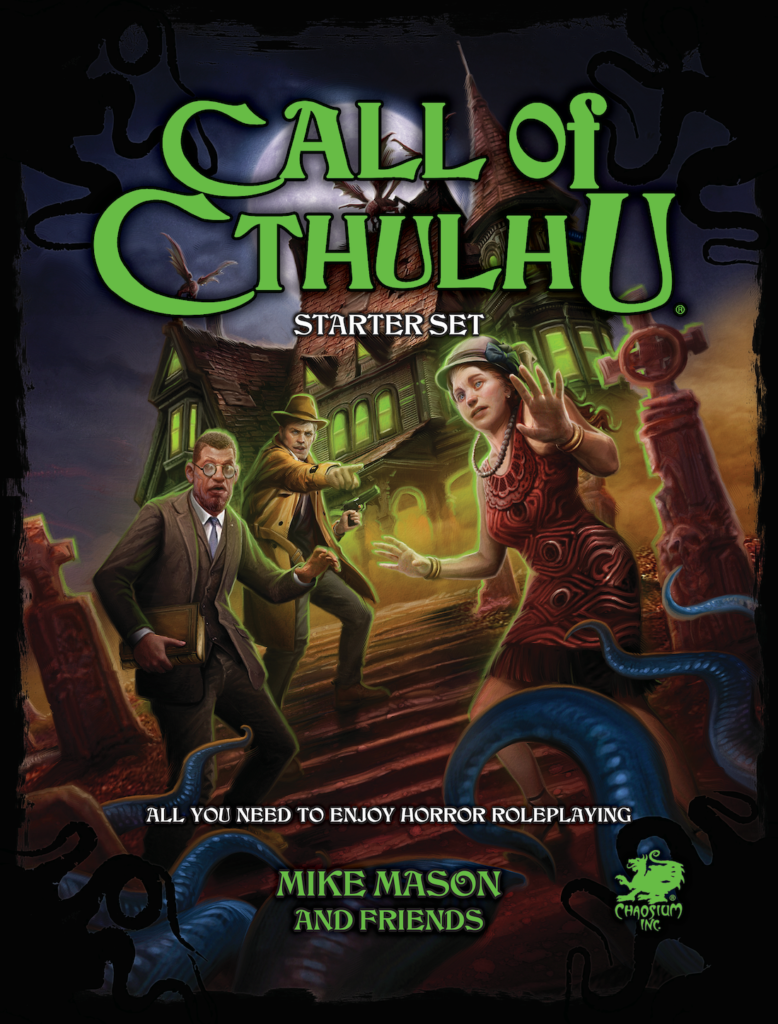I started to feel that I didn’t know roleplaying games well enough so I came up with the plan to read a roleplaying game corebook for every year they have been published. Selection criteria is whatever I find interesting.

I like reading the starter sets of different games because it’s interesting to see the different approaches to making a game accessible to new players. Call of Cthulhu’s Starter Set takes the unusual approach of focusing on the challenges of building a gaming group. The set opens with a solo adventure involving a fire-worshipping village. After that, there’s an adventure for a Keeper (the Call of Cthulhu term for the GM) and one player, and then two adventures for a full player group.
You start alone, then invite one friend, and then build up from there.
The box contains three books, pre-made characters, empty character sheets and handouts for all the adventures, as well as a set of dice. With a Starter Set, I think the experience of getting fun stuff in the box should never be underestimated!
The most interesting of the adventures is the last, Dead Man Stomp. It informs us that: “Call of Cthulhu, in whatever era an adventure takes place, is a game that can be used to explore social issues, such as race, poverty, inequality, and so on. Often such themes, when portrayed with a degree of historical accuracy, can be enlightening.”
Very different from the rhetoric that roleplaying is about fun found in most games!
The adventure is set in Harlem and although it deals with the supernatural phenomena typical of Call of Cthulhu games, racism forms the backdrop. It has a design feature familiar from many published adventures where it refuses to comment on who the player character should be, although to my eye it feels obvious it would work best with African-American characters, because they could be integrated in the communities it depicts and thus feel more motivated to get involved.
Dead Man Stomp is part of a trend where H.P. Lovecraft’s writings are repurposed to examine racism. The juxtaposition is interesting because so much of Lovecraft’s writing is informed by a strong racist sensibility. The best example of this I’ve read is Victor LaValle’s novella The Ballad of Black Tom which revisits the Lovecraft story The Horror At Red Hook.